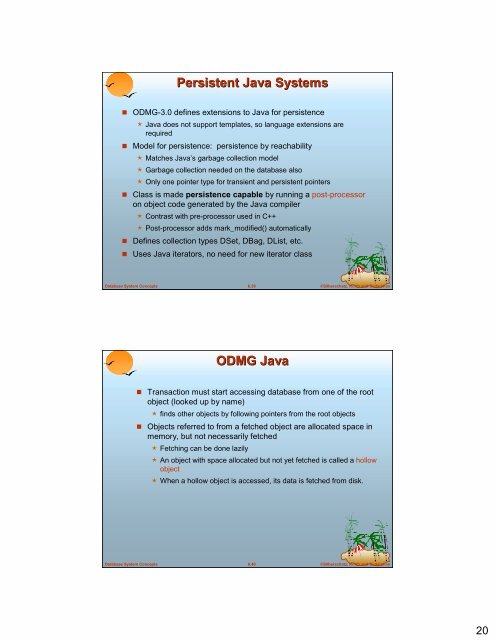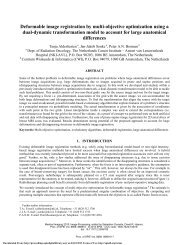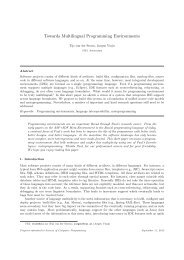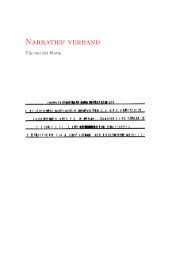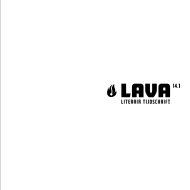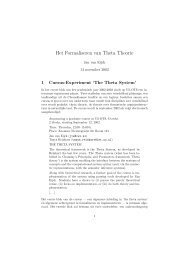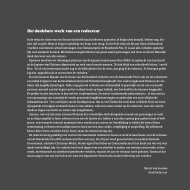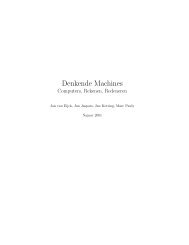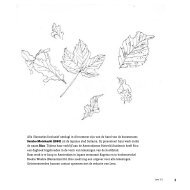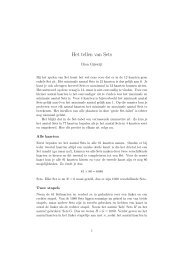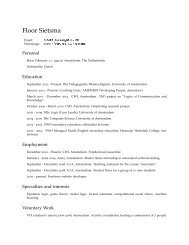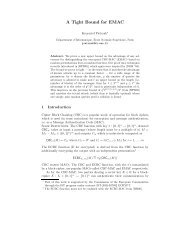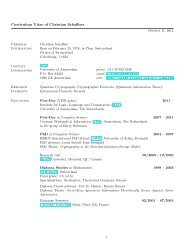Object-Oriented Databases Need for Complex Data Types - CWI
Object-Oriented Databases Need for Complex Data Types - CWI
Object-Oriented Databases Need for Complex Data Types - CWI
You also want an ePaper? Increase the reach of your titles
YUMPU automatically turns print PDFs into web optimized ePapers that Google loves.
<strong>Data</strong>base System Concepts<br />
Persistent Java Systems<br />
ODMG-3.0 defines extensions to Java <strong>for</strong> persistence<br />
Java does not support templates, so language extensions are<br />
required<br />
Model <strong>for</strong> persistence: persistence by reachability<br />
Matches Java’s garbage collection model<br />
Garbage collection needed on the database also<br />
Only one pointer type <strong>for</strong> transient and persistent pointers<br />
Class is made persistence capable by running a post-processor<br />
on object code generated by the Java compiler<br />
Contrast with pre-processor used in C++<br />
Post-processor adds mark_modified() automatically<br />
Defines collection types DSet, DBag, DList, etc.<br />
Uses Java iterators, no need <strong>for</strong> new iterator class<br />
<strong>Data</strong>base System Concepts<br />
8.39<br />
ODMG Java<br />
8.40<br />
©Silberschatz, Korth and Sudarshan<br />
Transaction must start accessing database from one of the root<br />
object (looked up by name)<br />
finds other objects by following pointers from the root objects<br />
<strong>Object</strong>s referred to from a fetched object are allocated space in<br />
memory, but not necessarily fetched<br />
Fetching can be done lazily<br />
An object with space allocated but not yet fetched is called a hollow<br />
object<br />
When a hollow object is accessed, its data is fetched from disk.<br />
©Silberschatz, Korth and Sudarshan<br />
20


